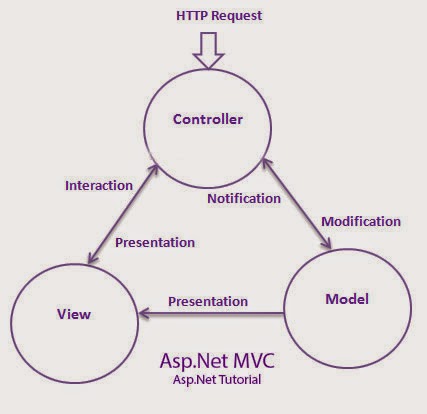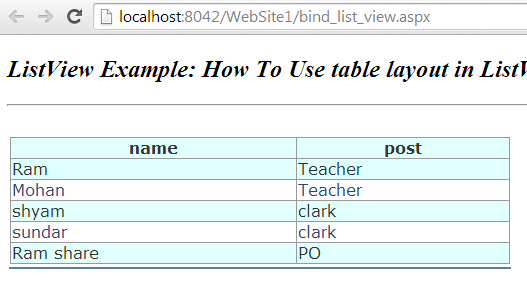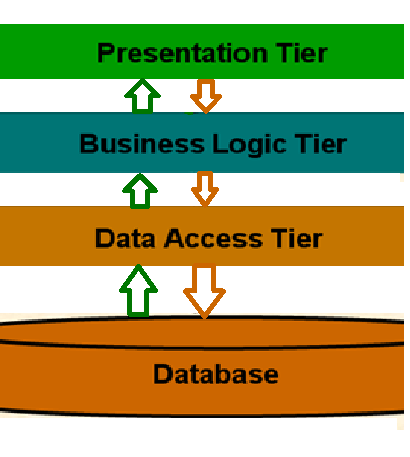Difference between ASP.NET WebForms and MVC
Difference between ASP.NET WebForms and ASP.NET MVC:
Asp.net framework is a part of .net platform. Asp.net is
use to creating, deploying and running web applications. In this Post we consider some major difference
between ASP.NET WebForms (normal) and ASP.NET MVC.
Asp.Net Web Forms:
- Asp.Net Web Form follows a traditional event driven development model.
- Asp.Net Web Form has server controls.
- Asp.Net Web Form supports view state for state management at client side.
- Asp.Net Web Form has file-based URLs means file name exist in the URLs must have its physically existence.
- Asp.Net Web Form follows Web Forms Syntax Asp.Net MVC follow customizable syntax (Razor as default)
- In Asp.Net Web Form, Web Forms (ASPX) i.e. views are tightly coupled to Code behind (ASPX.CS) i.e. logic.
- Asp.Net Web Form has Master Pages for consistent look and feels.
- Asp.Net Web Form has User Controls for code re-usability.
- Asp.Net Web Form has built-in data controls and best for rapid development with powerful data access.
Asp.Net MVC model:
- Asp.Net MVC is a lightweight and follow MVC (Model, View, and Controller) pattern based development model.
- Asp.Net MVC does not support view state.
- Asp.Net MVC has route-based URLs means URLs are divided into controllers and actions and moreover it is based on controller not on physical file.
- In Asp.Net MVC, Views and logic are kept separately.
- Asp.Net MVC has Layouts for consistent look and feels.
- Asp.Net MVC has Partial Views for code re-usability.
- Asp.Net MVC is lightweight, provide full control over markup and support many features that allow fast development. So MVC is the best for developing interactive web application or web sites with latest web standards.
- Asp.Net Web Form is not Open Source. Asp.Net Web MVC is an Open Source.



Comments
Post a Comment